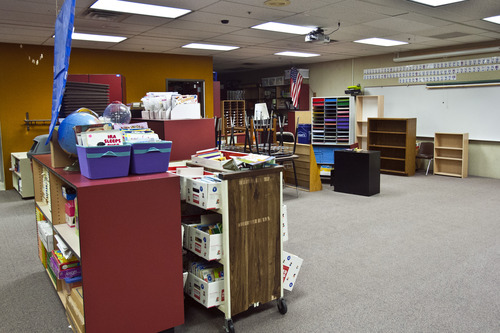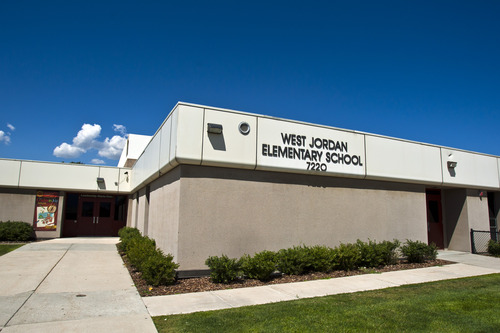This is an archived article that was published on sltrib.com in 2013, and information in the article may be outdated. It is provided only for personal research purposes and may not be reprinted.
Voters in the Jordan School District resoundingly rejected a proposed half-billion dollar bond, the biggest ever in Utah.
The Jordan School Board was seeking approval for a $495 million bond to build and remodel schools, buy land, erect a new south transportation facility and replace the Jordan Applied Technical Center.
Board President Richard Osborn called the vote "kind of shortsighted."
"We'll take care of the kids somehow," Osborn said. "It just won't be what we had planned."
Only 33 percent of voters cast ballots for the bond, according to unofficial results.
The bond would have meant a property tax increase of up to $10 monthly for every $100,000 value for homeowners, according to estimates. That would have meant a maximum of $300 per year on the average home in the district, valued at $248,000, and $546 per year for the average business.
The district's student population has boomed, rocketing to 51,000 students, with more than 2,000 new students expected this fall and 29,000 during the next decade.
Osborn said the failure of the bond will mean more busing and students housed in portable classrooms. Some schools will likely have to go year-round, he said.
The board put the issue to voters after a survey showed it would pass, but opposition grew in recent days.
The mayors of South Jordan, Riverton and Bluffdale came out against the massive bond, and Bluffdale's elected leaders sent a letter to residents this past weekend urging a vote against the bond. The Utah Taxpayers Association jumped into the fray, passing out lawn signs opposing the bond.
In Taylorsville, 53 percent of voters favored joining the Unified Fire Service Area (UFSA). Proponents and opponents had been split on whether being part of UFSA would save money and improve service.
In other measures, Orem residents were giving the nod, in early results, to a proposal to renew the Cultural Arts and Recreation Enrichment (CARE) tax. But early results had voters rejecting a property tax adjustment that would raise an additional $1.7 million a year for municipal operations.
Kaysville voters approved a grass-roots initiative to require that all power-department revenues be used only to fund the department's operations, and not for other city expenses.
In Carbon County, East Carbon and Sunnyside residents overwhelmingly agreed to merge the two cities.
Hyde Park voters decided overwhelmingly that the Maverik convenience store in town can sell beer. The City Council had approved the city's first-ever beer sales a year ago, but a citizens group got up a referendum in opposition.





